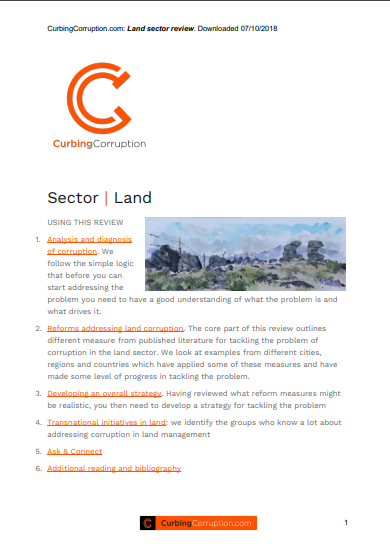Kazakhstan’s leaders have long harbored ambitious visions for their country’s future. The country’s first President, Nursultan Nazarbayev, launched several far-reaching goals for the country’s development, most notably in 2012 the “Kazakhstan 2050” strategy, which aimed for Kazakhstan to take a place among the world’s 30 most developed states by mid-century.
Search results
Showing items 1 through 9 of 36.-
Library ResourceReports & ResearchNovember, 2021Kazakhstan
-
Library ResourceJournal Articles & BooksJanuary, 2021Syrian Arab Republic
The impending close to the war in Syria brings to the fore the prospect of approximately 13 million forcibly displaced people considering returns to places of origin in the country. However the reattachment of people to their housing, land and property (HLP) faces a daunting set of challenges—the prospect of demographic change, the application of expropriation laws, confiscations and political agendas.
-
Library Resource
Companion to Land Portal Zimbabwe country narrative
Reports & ResearchDecember, 2020ZimbabweThis detailed timeline provides further background information on the history and land governance of Zimbabwe summarised in the Land Portal country profile.
-
Library ResourcePolicy Papers & BriefsApril, 2015
Public lands accounted for 80% of the country area until a decade ago. As Cambodia emerged from three decades of civil war and internal strife, the Royal Government of Cambodia (RGC) has granted more than 10% of the country area or 50% of the cultivatable land as large scale “Economic Land Concessions” (ELCs) to private companies, mostly foreign owned, in a mostly rigged process. Land disputes have become a permanent fixture in the press and a hot issue on human rights reports.
-
Library Resource
Vol 4, No 1: January 2021
Peer-reviewed publicationJanuary, 2021ZimbabweExisting land governance system in Zimbabwe subjects vulnerable groups such as women to ‘land corruption’, which entrenches the already existing gendered land inequalities. This study used secondary data and found that Zimbabwe has witnessed various forms of corruption in general and land corruption, in particular, despite the country having the requisite policy, legal and institutional frameworks as well as other mechanisms to curb the scourge of corruption.
-
Library ResourceJournal Articles & BooksMay, 2011South America, BrazilIn this beginning of century, Brazil has, on one hand, a high economic growth, strong institutions in various areas and improvement of social situation, but, on the other hand, the rural and urban land situation is still very precarious, with elementary issues that are not resolved and that most developed countries solved them still in the eighteenth and nineteenth centuries.
-
Library Resource
A rapid scan of news stories curated on knowledgebase.land
Reports & ResearchApril, 2020South AfricaEvery day since Pres Ramaphosa was elected into office we have searched out South African land-related news which is curated on our website knowledgebase.land. This publication provides a brief summary of land news across a range of categories for March 2020
-
Library ResourceJournal Articles & BooksOctober, 2018Global
Land is consistently ranked among the sectors where people most often report having to pay bribes to access services, according to Transparency International’s Global Corruption Barometer. The Land Portal has summarised the latest available (dated 2013) global data here, which shows that the incidence of bribes paid for land services can be over 50% in countries such as Cambodia, India and Pakistan.
-
Library Resource
Vietnam in Transition
Reports & ResearchPolicy Papers & BriefsDecember, 2008Vietnam, Eastern Asia, OceaniaAfter decades of war, with a dilapidated infrastructure and millions of people dead, wounded or displaced, Vietnam could have been considered a hopeless case in economic development. Yet, it is now about to enter the ranks of middle-income countries. The obvious question is: How did this happen? This paper goes one step further, asking not which policies were adopted, but rather why they were adopted. This question is all the more intriguing because the process did not involve one group of individuals displacing another within the structure of power.
-
Library Resource
The Brazilian Experience in the Context of Latin America
Reports & ResearchPolicy Papers & BriefsDecember, 2008Brazil, Latin America and the CaribbeanBrazil grew 2.4 percent per year on average in the last 25 years-somewhat less than Latin America, a good deal less than the world, far less than the emerging countries of Asia in the same period, and indeed far less than Brazil itself in previous decades. If anything stands out favorably in recent Brazilian experience, it is not growth but stabilization and the successful opening of the economy. The purpose of this paper is more modest.
Land Library Search
Through our robust search engine, you can search for any item of the over 64,800 highly curated resources in the Land Library.
If you would like to find an overview of what is possible, feel free to peruse the Search Guide.








